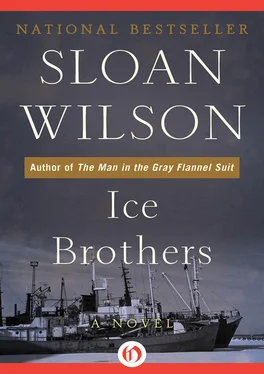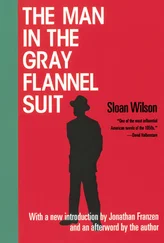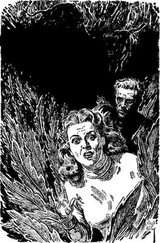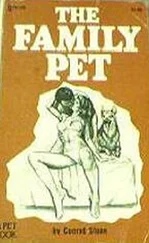“Maybe he was afraid to talk about it. He kind of broke down when he told me.”
“It makes me feel strange — all this time I thought I knew him so well and I didn’t know the main thing—”
“He’s all right now. There’s nothing weak about him.”
“That’s for sure. Funny how little you can really know about somebody even when you’re all locked up aboard a little ship …”
“Maybe it’s just that men don’t usually talk about their wives much, even with their best friends. Did you ever discuss yours with him?”
“No. I don’t have all that much to discuss.”
There was a short silence.
“How do I stand with you?” he asked finally. “I mean, are you really tied up with Nathan? I don’t blame him and I don’t blame you, but I should know.”
“Paul, you have me when you have me. We’re all blind people here, stumbling around trying to help each other in the dark. No rules apply here. Now, didn’t you ask me out for dinner? I can’t wait to see what that cook of yours is going to give us.”
Cookie had prepared roast lamb with appropriate fixings. It was good, but Paul didn’t feel at all hungry. He thought of Nathan wrapped up with worry about his wife while old Mowrey was hounding him and he was seasick all the time. No wonder his gaunt face had that look of tragedy, even when he smiled.
“There’s one more thing I want to tell you,” Brit said when the dishes had been cleared from his cabin. “Nathan said he’d talk to you about it, but it would be better if I did.”
“What?”
“I want to get out of here and get my father out. Nathan says planes go to the States from the west coast every day, and if I could get the proper authorization …”
“We can radio for permission. I don’t know what they’ll say.”
“We still have an embassy. If you could get in touch with the right people — it was Nathan’s idea.”
“We’ll do what we can. I should have thought of it myself.”
“I didn’t really level with you. I’m going crazy here and my father’s already crazy. Paul, we have to get out.”
Soon she asked to go ashore and he had the whaleboat take her in. When it came back, he saw Nathan standing in the stern. The tall, gaunt man in the Eskimo furs stepped awkwardly to the deck.
“Could you come up to my cabin for a minute?” Paul called from the bridge.
Nathan came up the steps. Paul met him in the pilothouse.
“Nathan, Brit told me about your wife,” he said, and to his own astonishment, found himself hugging his executive officer. He had never before hugged a man in his life, not even his brother or father. Embarrassed, he stepped back.
“Thanks,” Nathan said. “You know … well, we’ve always understood each other anyway. You know … we don’t have to talk.”
“Not about that. But send a message to GreenPat and see if we can find a way to get Brit and her father to the States. I wish I’d thought of that myself.”
“I’ll take care of it, you’ve been busy.”
Turning, Nathan almost ran out of the pilothouse. Paul climbed wearily to the flying bridge. It was a bitterly cold night, but a half moon was breaking through the windswept clouds as though it were fighting for life.
CHAPTER 48
As the ninth of December wore on, the days became shorter and shorter until finally sunrise merged with sunset and there was only a few minutes of ruddy red glare on the icy mountains to mark high noon. That would be time enough to allow the bombers to do their work and on clear nights the stars and the moon made that white world surprisingly light without the sun. The trouble was, there were few clear nights. One blizzard was quickly followed by another, and what the Eskimos called good weather was any wind less than fifty miles an hour and any temperature above fifty below. Still the fjord, with its swift-running currents and great tidal rise and fall, did not freeze, and the ice pack off shore was so driven by winter gales that it formed a less formidable barrier along the coast than it did in summer.
Driven by the knowledge that they must soon attack the Germans, the crew of the Arluk worked as it had never worked before. Every man who was not needed to guard the prisoners and the ship unloaded the heavy depth charges from the hold and carried them in the whaleboat and in the Danes’ launch to the settlement. Because a dog sled could carry only one of the great charges at a time, Nathan and Brit decided that the Danish launch could carry a load of them to a point just short of Supportup, where they could be landed on the coast and dragged up low cliffs there with ropes. This operation awaited only the return of Peomeenie. Paul should not be surprised by his long absence, Brit still kept on saying. In every blizzard Peo undoubtedly would build an igloo out on the ice shelf that extended from the shore for thousands of yards into the sea. The proximity of relatively warm ocean currents there cut the cold in the shelter of an igloo, and by hacking a hole in the ice Peo could catch enough fish to last out the winter if necessary. With his whale oil lamp glowing in his crystal dome, he and Ninoo, his companion, could laugh together until the sun came back to stay.
“I should have told him I wouldn’t pay him unless he got back here fast,” Paul said.
“When you come right down to it, what’s the hurry?” Brit asked.
“While your friend Peomeenie and his damn Ninoo are laughing together, the goddamn Krauts are sending out weather reports, and with those their planes are bombing the bejesus out of every city from Moscow to London,” Paul said. “We’re supposed to break that up. That’s what the hurry is.”
“But not even an Eskimo can go far in a blizzard,” Brit said. “And Peo is very thorough. You kept telling him you want to know where every gun emplacement is. That means he has to cover both sides of the fjord. He’ll have to go inland for miles before he can cross it. I’m sure he’s doing his best and no one in this world could do better.”
Paul was not convinced. His fear that Peomeenie might have been captured or killed was growing. The moaning of the wind and the ruddy glare of the sun during its brief appearances on the horizon seemed to be setting a scene only for disaster. While everyone else worked to maintain the ship, guarded prisoners or drilled with the Eskimos ashore, Paul actually had very little to do, and the long hours he spent idly in his bunk made him feel obscurely guilty. Flags reported that radio signals in a variety of frequencies were pouring from some place nearby to the south, presumably Supportup. Obviously the Germans were carrying out their mission. Perhaps it had been only cowardice that had caused Paul to make these elaborate preparations, instead of sailing into their fjord and just attacking as best he could. Each day Paul checked off on his calendar in the nautical almanac seemed a personal defeat.
There was not a book aboard the ship he’d not read and his memories of the past did not offer much comfort in introspection. For a long while he had avoided thinking about his wife. Sometimes Sylvia came to him in dreams, voluptuous, golden-haired and more eager for love than she had usually been, but such visions just made him wake up hornier than ever and when he was in that mood, he had to be careful not to get furious at Brit and Nathan. He felt peculiar now every time Nathan knew he was alone with Brit and every time he knew she was alone with him. Damn it, they weren’t Eskimos, no matter how much they all respected and needed each other and so forth …
The more Paul thought about his situation, the more ridiculous he appeared to himself. He was an unfaithful husband who brooded about both his wife and mistress being unfaithful. He admired the Eskimos’ freedom from jealousy and possessiveness, but needed at least the ideal of one man and one woman pledging themselves to each other forever and meaning it. Temporary love affairs in time of war were probably inevitable, maybe even necessary to stay alive sometimes, but in the future he wanted at least to hope for something more. He could accept Nathan’s need for Brit and her desire to comfort him, but he found that he did not want to daydream anymore of coming back to her after the war. He didn’t want to ask her to sail around the world with him. Perhaps it was only a white man’s craziness, but if he took a woman on such a voyage he would not want to worry about her running off with any man who needed her, or who offered a jolly hour of laughing together without jealousy or a sense of betrayal. It seemed, in short, that he was hopelessly himself …
Читать дальше












